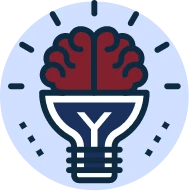Undergraduate Programmes (UG)
Candidates must have secured a minimum of 50% marks in 12th standard (Secondary School Certificate) from State Boards, CBSE, or CISCE (Council for the Indian School Certificate Examinations).
Postgraduate Programmes (PG)
Applicants must hold a bachelor’s degree in any discipline from a university/institution recognised by the UGC or an equivalent body, with a minimum aggregate of 50% marks or an equivalent grade (CGPA/CPI, etc.).
Final-year students may also apply, provided they can submit their final year degree certificate/mark sheet within the stipulated deadline. Admission will remain provisional until valid proof of passing the bachelor’s degree examination with the required percentage is submitted. Failure to do so will result in automatic withdrawal of admission without further notice.
Management Programmes
Candidates must have a valid test score in any of the following national-level entrance exams conducted in the current year:
CAT (conducted by IIMs)
XAT (conducted by XLRI)
MAT
NMAT
CMAT
GMAT (valid for five years—ensure your score remains valid until the enrolment date as per the schedule)
Note: IIMs and XLRI have no role in the selection process or conduct of the programme.
Engineering Programmes
Applicants must hold a B.E./B.Tech. degree in the relevant discipline.
Law Programmes
Candidates must possess an LL.B. degree or an equivalent qualification from a recognised university, with at least 50% marks in aggregate (45% for SC/ST and PWD candidates).
IILM University follows the UGC-mandated refund policy for all undergraduate and postgraduate programs


Empowering Healthcare Professionals for Leadership Roles
IILM University’s MBA in Healthcare & Hospital Management combines sector-specific knowledge with practical experience, shaping professionals ready to make impactful changes in the healthcare industry.

Acquire leadership skills to manage healthcare organisations, ensuring effective decision-making and improved patient care.

Learn to optimise healthcare processes and improve operational efficiencies in hospitals, clinics, and other healthcare facilities.

Understand and implement cutting-edge technologies like health IT and data analytics to enhance patient outcomes and organisational performance.

Drive innovation by adopting new processes and technologies, improving healthcare delivery and addressing industry challenges.

Embed ethical principles in decision-making, ensuring compliance with healthcare regulations and fostering trust in healthcare systems.

Gain in-depth knowledge of healthcare systems, quality assurance, and health economics, preparing for leadership roles across the sector.

The BBA programme and its real-world exposure paved my way to the University of Leeds.
BBA 2022

The BBA programme and its real-world exposure paved my way to the University of Leeds.
BBA 2022

The BBA programme and its real-world exposure paved my way to the University of Leeds.
BBA 2022

Prepare students to lead healthcare organisations by equipping them with strategic thinking, operational knowledge, and ethical decision-making skills.
Encourage students to embrace innovation and utilise technological advancements to enhance healthcare services and patient outcomes.
Provide a multidisciplinary approach, enabling graduates to excel in hospitals, pharmaceuticals, health IT, public health, and biotech.
Equip students to tackle global healthcare challenges, including sustainability, patient safety, and accessibility, with a focus on impactful solutions.
Bachelor’s degree in any discipline with at least 55% marks in 10th, 12th, and graduation.
